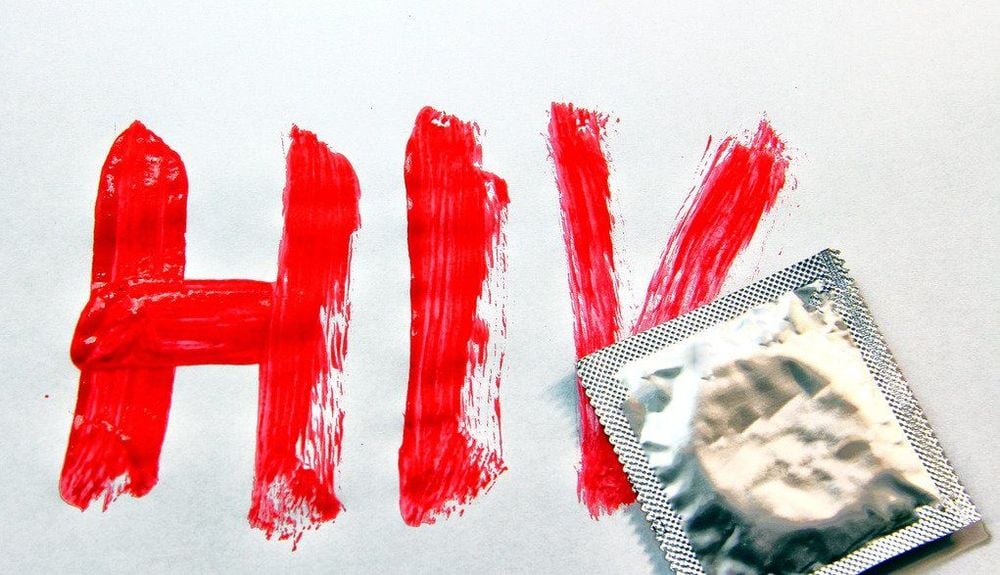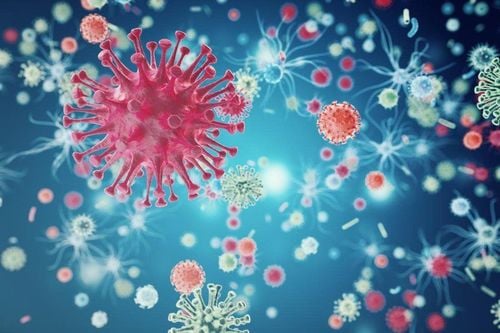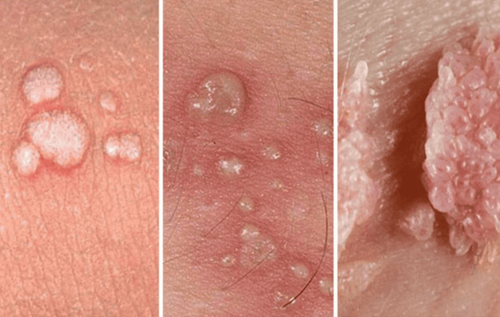This is an automatically translated article.
HIV/AIDS is a disease of the century that still has no definitive cure. Most patients with HIV/AIDS are usually transmitted through blood, sexual contact and from mother to child.
1. What is HIV/AIDS?
HIV is the virus that causes acquired immunodeficiency syndrome in humans. This virus damages the immune system, making the human body no longer able to fight off pathogens and leading to death.
AIDS is the final stage of HIV infection which is represented by diseases: opportunistic infections, cancer and diseases related to immune disorders leading to death. The time it takes to go from HIV to AIDS depends on an individual's behavior and immune response. According to many studies, the average duration is 5 years.
2. How is HIV transmitted?
To date, HIV has been found in semen, vaginal fluids, blood, blood products, tears, saliva, cerebrospinal fluid, and breast milk. However, only 3 routes of HIV infection have been identified:2.1. HIV is spread through blood HIV enters the body through the blood and they directly affect the T lymphocytes in the blood (the front line to help the body fight harmful factors) and neutralize the T. blood-borne transmission by:
Using non-sterile skin-piercing instruments such as syringes, ear piercing needles, tattoo needles and other sharp instruments. The risk of infection is related to the number of injections and the use of injection equipment by many people. HIV transmission in healthcare facilities through non-sterile medical equipment. Caregivers of HIV/AIDS patients are infected with HIV through oozing cracks when in contact with the patient's blood and biological fluids. Being stabbed in the hand by a needle, cutlery in the right hand, stepping on a needle with blood on the patient's hand, ... due to occupational accidents (mainly medical staff). Transfusion of blood or blood products without being screened for HIV. 2.2. HIV is transmitted through unprotected sex

Quan hệ tình dục không an toàn có thể lây nhiễm HIV
HIV virus is sexually transmitted by:
Vaginal sex. Anal sex. Oral sex: lower chance of transmission. However, if there is a scratch or bleeding in the mouth without knowing it, there is still the possibility of HIV infection. 2.3. HIV transmission from mother to child HIV transmission through which ways? An HIV-infected mother who gives birth to a baby has a 30% chance of transmitting the infection. Newborns infected with HIV usually do not live more than 3 years.
HIV virus is transmitted from mother to child by:
Through the placenta while the baby is in the womb. Through the mother's blood and fluids at birth. Through breast milk when the mother breastfeeds.

HIV có thể lây truyền từ mẹ sang con
3. At what stage is HIV transmitted?
The stages of HIV/AIDS are:
Primary infection (window period - ARS): within 1-2 months after HIV enters the body, 40-90% of patients experience symptoms. flu-like such as fever 38 - 40oC, sweating, sore throat, fatigue, muscle and joint pain, swollen lymph nodes,... This is the time when the virus moves into the blood and replicates in large numbers. Symptoms of swelling and inflammation are an inflammatory response of the immune system. About 2-3 months after initial infection, the patient's body produces specific antibodies and only then will the test detect HIV positive. The HIV-positive phase lasts about 5 to 10 years. Asymptomatic stage of infection: the patient's body has no abnormal symptoms because only a small amount of white blood cells are destroyed. The HIV virus continues to thrive. This period lasts from 5 to 10 years. During this stage, the body gradually transitions to chronic HIV infection with swollen lymph nodes. The stage related to AIDS: the body gradually weakens, the patient has symptoms of tonsillitis, sinusitis, stomatitis, pharyngitis, or itchy rash, rash, nail fungus,... After a few months to After several years, the patient showed signs of weight loss, persistent fever, swollen lymph nodes, night sweats, diarrhea, etc., which recurred, indicating that the immune system had begun to decline. AIDS stage: the final stage of HIV infection, which manifests as immunodeficiency-related disorders: generalized lymphadenopathy, fever lasting more than one month, prolonged diarrhea, severe weight loss (approximately 10 months). % body weight). Patients are easy to die from opportunistic infections such as pneumonia, meningitis, enteritis, lymphoma, vascular cancer,... Regarding the risk of transmission, HIV virus can be transmitted at any stage. stage in the infection process.
4. HIV is not transmitted by which way?
Is HIV transmitted through saliva? Is HIV transmitted through mosquito bites? The answer is no. A healthy person will not be infected with HIV if:
Shake hands, hug and eat with an infected person: the composition of body fluids such as saliva of an HIV carrier only has a very small amount of virus, so it is not enough to destroy the human body. Standing near sick people sneezing and coughing, sharing clothes, swimming in pools, etc. Bitten by mosquitoes or insects: HIV virus does not live and reproduce in the body of mosquitoes or insects.
5. How to prevent HIV infection
Effective measures to prevent HIV infection are:
Live a healthy, monogamous life, not having unprotected sex. In case of sexual intercourse with another person need to use condom correctly. Transfuse blood and blood products only when absolutely necessary. Patients only receive blood and blood products that have been tested for HIV. Medical staff should wear protective gloves when giving blood and when in contact with vomit, blood, ... of the patient. Do not share needles and syringes, only use sterilized tools when doing surgery, tattooing, acupuncture, etc. HIV-infected women should not get pregnant, if pregnant, they should not give birth. In case of wanting to have a baby, the mother should go to a reputable medical facility for advice on how to avoid infecting the baby. Do not share toothbrushes, razors, etc. with sick people.
Package of Social Diseases Examination and Screening of Vinmec International General Hospital helps customers to screen for social diseases in order to detect diseases early for effective treatment and avoid complications.
Please dial HOTLINE for more information or register for an appointment HERE. Download MyVinmec app to make appointments faster and to manage your bookings easily.













